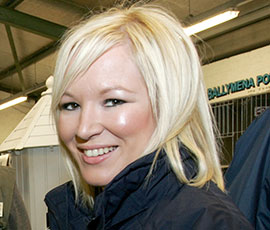DARD opts for 0% modulation after court fight

The CAP modulation rate in Northern Ireland will be set at 0% after the agriculture minister’s plan for a 7% cut in direct support was successfully challenged in the High Court.
Last month NI agriculture minister Michelle O’Neill announced proposals under the CAP reforms to transfer 7% of direct support (Pillar 1) to fund rural development projects (Pillar 2).
But the province’s finance minister Simon Hamilton took legal action to prevent Ms O’Neill going ahead with the plan. Mr Hamilton’s challenge was based on the premise that Ms O’Neill had not consulted her fellow executive ministers about the plan to transfer £100m from farm payments over a six-year period.
The NI Department of Finance and Personnel said: “It was the [finance] minister’s view that the DARD minister was acting in breach of the ministerial code.”
Ruling in Mr Hamilton’s favour at the court hearing on 27 December, Lord Chief Justice Sir Declan Morgan said it was “a case about political failure”.
Officials at DARD responded saying that the department accepted the court decision. It added that because it was faced with a tight deadline to notify Brussels of the province’s modulation plans the department had opted for a rate of 0%.
Ms O’Neill said: “I am disappointed as we all know the scale of what has to be done by the Rural Development Programme, and that insufficient funding is being made available under Pillar 2 direct from Brussels.
“Elsewhere in this member state, England has set a rate of 12%, Scotland has set a rate of 9.5% and Wales has set a rate of 15%. Here, we in the NI Executive, will have to come up to the mark and make available funds to bridge the deficit which will support the farming sector, enhance the environment and meet the needs of rural communities.”
Ms O’Neill added: “I have worked tirelessly to develop the farming and wider sector, driving growth in the sector, ensuring good environmental outcomes, and investing in rural infrastructure. This demonstrates to those who share my disappointment at the funding outcome, that I will continue to balance the need to finance the development of the wider rural economy, competitiveness in the farming industry and the environment. We need to grow the farming and wider rural communities together.”
See more news and features on CAP reform
